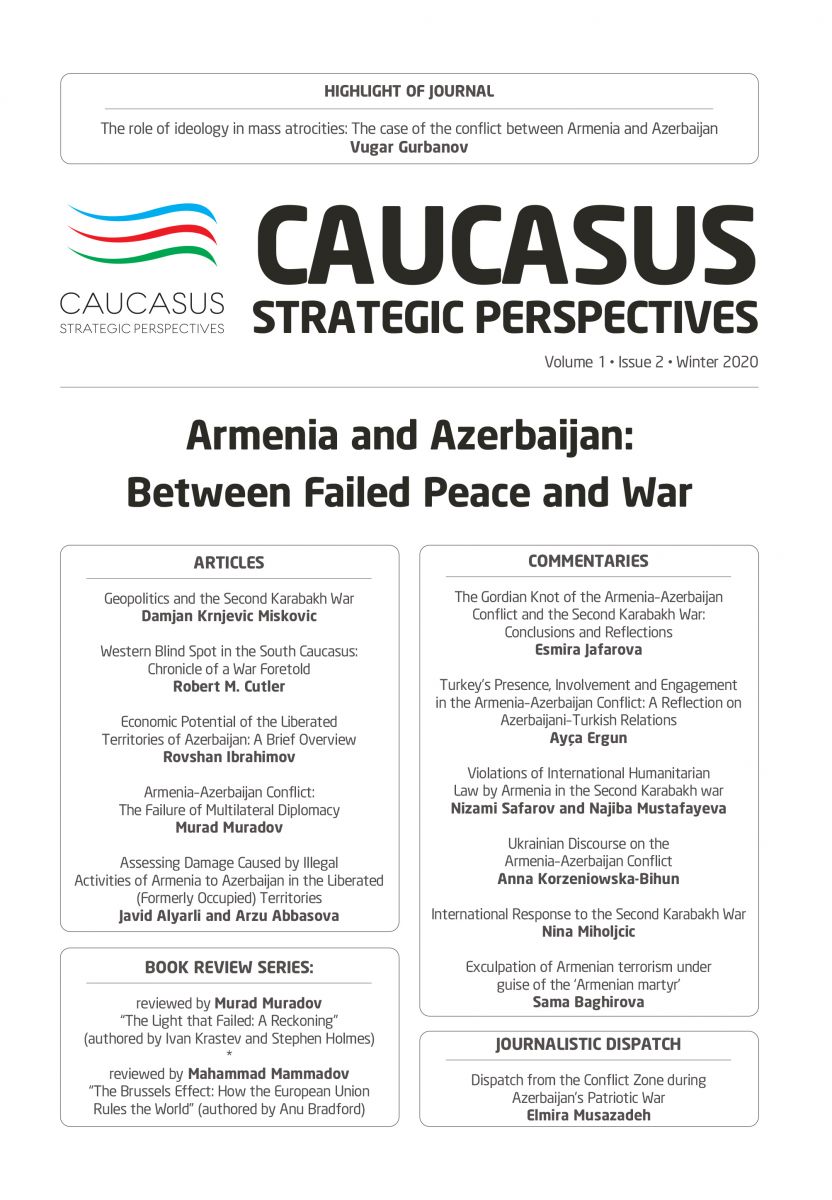International Response to the Second Karabakh War
The dynamics of power in the South Caucasus has recently been changed. The Armenia–Azerbaijan conflict has revealed a broader regional power struggle for influence in the South Caucasus. International responses to the Armenia–Azerbaijan war have varied from strong Turkish political support to the Azerbaijani side and gradually intensifying Russian intervention to a somewhat weak and neutral Western stance. While Turkey has gained a foothold in the region, Russia has also taken on a new, responsible role as a regional peacekeeper, which has reaffirmed Moscow’s presence in its sphere of influence. Western neutrality and disinterest in the South Caucasus’s affairs have opened a space for the prospects of future cooperation between Russia and Turkey and a better balancing of their possible disagreements. It is important to analyze the activities of foreign actors in local territorial disputes, because foreign actions can change or influence the course of conflicts and reveal a wider struggle for power. The Second Karabakh War has changed the balance of power in the South Caucasus. Turkey has become a more important foreign stakeholder in the region. Russian presence, although counterpoised by Turkey’s support to Azerbaijan, has remained strong in the South Caucasus, while the West has experienced a significant weakening of its influence in this region.
Latest news
- 12/27/2024 Call for Submissions-Caucasus Strategic Perspectives, Volume 6, Issue 1, Summer 2025 680 views
Popular articles
- 07/18/2022 The Russia–Ukraine War: Perspective of Azerbaijan 4350 views
- 10/14/2020 The Non-Aligned Movement: In Pursuit of Validity and Relevance in the Contemporary Global Order 3324 views
- 10/14/2020 Vicious Circle of the South Caucasus: Intra-Regional Conflicts and Geopolitical Heterogeneity 3299 views
- 10/14/2020 Relevance of Non-Alignment for Azerbaijan’s Foreign and Security Policy 3029 views





